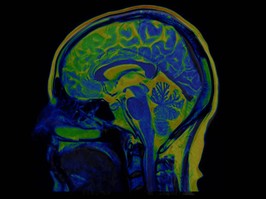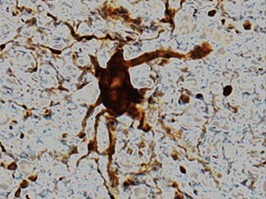after one of the most contentious u.s. elections in recent memory concluded, it is easy to look at “the other side” with complete disdain and confusion. why in the world would they choose to vote that way? do they not understand what is at stake?for decades scientists have tried to tease apart the differences between people who vote for conservative versus those who support progressive political parties. their findings — that genetics tend to influence nuanced political opinions, that people who vote more conservatively are more likely to be responsive to fear-based imagery and that progressives may be more comfortable in uncertain situations — may shed light on how each group sees the world. and perhaps help us overcome our political differences.
the brain on politics
there does seem to be evidence that people who hold conservative values are wired to be more sensitive to external threats, while liberals are less likely to be bothered by uncertainty.
researchers at the university college london and bbc radio 4 had 90 young adults rate their political attitudes on a scale of one to five, with one being “very liberal” and five being “very conservative.” they then took mri scans of the participants brains and, after controlling for gender and age, found that liberal self-ratings correlated with a larger area of the brain that processes uncertainty (anterior cingulate cortex), while conservative ratings correlated with larger areas of the brain that process fear (the amygdala).finding that individuals who hold conservative values may generally have larger amygdala is interesting, as it relates to
another study conducted in florida in which students who claimed to support the republican party were more likely to label ambiguous facial expressions as threatening than democrat supporters.
a separate study published in
science of 46 adult participants also found that individuals with a higher sensitivity to sudden noises and threatening images were more likely to support defence spending, capital punishment, and patriotism. in contrast, individuals who had less of a physical response to these images were more likely to support liberal immigration policies and gun control.support of progressive values correlating with a larger anterior cingulate cortex (acc) is interesting because it may show how progressives tend to tolerate more uncertainty than conservatives. because the acc have been shown to play a role in processing uncertainty and conflict, a larger acc may allow these individuals to be more comfortable continuously monitoring situations of uncertainty, leading to a higher tolerance.the uncertainty hypothesis connects with
a recent meta-analysis of 38 journal articles and various papers from 1958 to 2002, which found that people who say they hold conservative values also tend to dislike uncertainty and desire order and structure.various parts of the brain have many different functions, so it is entirely possible that different parts of the brain may change in size based on a host of factors outside of political beliefs.while looking at specific areas of the brain can give us valuable insight, it is important to also remember that it is the complex interactions between various brain structures and our environments that help shape our personalities. research into genetics and politics has shown that both play a role in our political decisions.
genetics and politics
a study published in the american political science review found evidence that genetics play a role in our nuanced political stances but may play less of a role in which party we outright support.the researchers found that certain political attitudes and beliefs, such as those concerning school prayer and property taxes, tended to have genetic influences. however, more overt declarations, like which party the participants supported, instead tended to be correlated with how the respondents were socialized as children. (for example, what party the respondents’ parents supported.)to get at this finding, the study compared twins’ responses on the wilson-patterson (w-p) attitude inventory; 50 questions that revolve around if the respondent holds negative or positive attitudes towards traditional conservative values.socially known as “identical twins,” monozygotic twins share identical genetic material, whereas fraternal twins (di-zygotic) come from two separate eggs and sperm and thus have only as much genetic similarity as typical siblings. by comparing the survey answers from the two groups (mono-zygotic and di-zygotic), researchers can begin to get a sense of what attitudes are due to independent life experiences and those due to genetics.it is important to note that just because genetics influence our political stances, they are not the entire story. as noted in the paper “genes do not work in isolation”. our genetics influence the way we respond to our environment, but the individual experiences we encounter will also shape our beliefs.all this rounds out to show that people on either side of the aisle may actually see the world in a different way, but this does not mean that our political leanings are set in stone or the same as everyone else in our political sphere.
multiple studieshave shown that the structure of our brain can change based on experiences and education into adulthood, giving hope to the idea that through continued conversation — and a lot of work — we may one day be able to heal our political divides.
emjones@postmedia.com |
@jonesyjourndon’t miss the latest on covid-19, reopening and life. subscribe to healthing’s daily newsletter covid life.
 4 minute read
4 minute read








